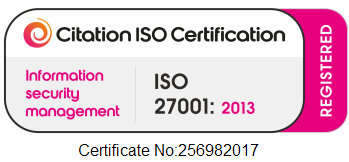Healthcare Funding – How Will This Affect The Healthcare Recruitment Sector?
The coronavirus pandemic has already led to significant costs for the NHS in 2020/21, with increased spending of at least £34.9bn – almost 24% of the planned health budget last year.
While additional spending on PPE, Test & Trace and vaccines were and continue to be vital, this increase does not contribute to the NHS long term plan aims of transforming and modernising services, while meeting underlying demand and replenishing its workforce.
It’s estimated to meet part of the NHS’s long-term plan they would need an additional 4,000 extra consultants and 17,000 extra nurses a year, which would require an additional £900m on top of the current spending plans. Even excluding the costs associated with directly managing COVID-19, restoring waiting times, additional mental health demand and lower productivity will cost around £10bn extra next year if the NHS is to have sufficient resources to deliver the long-term plan.
Late July last year a further £3bn in healthcare funding was announced for NHS England to prepare the NHS for the anticipated increase in demand for care over the winter. However, since then the winter economy plan included a further £16.4bn in spending in the hope to provide the NHS with enough funding to supply care settings with further health and social care professionals.
Concerns about the UK’s need for more hospital and care staff does not stop there, there is also a demand to provide further investment for additional education and re-training for employed staff. Education is no longer just an employee benefit. It is a forward-thinking employer strategy to fill specific skills gaps, recruit and retain the best talent, and improve organisational performance.
Health and social care organisations are continuously being asked to evaluate their learning and development strategies and find new ways to promote employee retention. Today’s employees want to be able to grow in the workplace, and data has found they’re more likely to stay if they can find opportunities for advancement, which is critical if the NHS wants to tackle staffing shortages.
This additional healthcare funding to set to provide organisations with the appropriate infrastructure and budget to fill thousands of care placements. For some organisations, increased budgets will allow them to regain confidence in their talent acquisition efforts by simply incorporating the right technology or shifting workflows to meet new hiring objectives. Others may need to conduct a strategic overhaul, adjusting how they search for, acquire, and nurture talent.
What’s more, 40% of hiring professionals are using the funding to adopt new ways to communicate with candidates, such as through text and video chat. These changes are representative of a shift within some organisations to make applying for a job more accessible and streamlined for candidates.
Similarly, as hiring managers and the NHS improve candidate attraction and onboarding facilities, it’s important that care organisations continue to enhance their end-to-end talent management strategy using powerful technology to cultivate leadership and track/monitor employees as they progress in their careers and acquire new skills.
With a robust talent management platform in place, organisations will have more opportunities to identify employees who would thrive in leadership positions. They’ll also be able to improve employee mental wellbeing by providing team members with more opportunities to grow within the company.
Share this post and follow us on social media!
Like our blogs? Sign up for our newsletter




Comments are closed